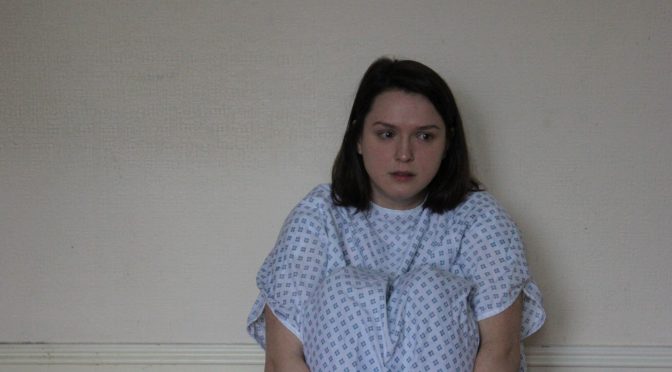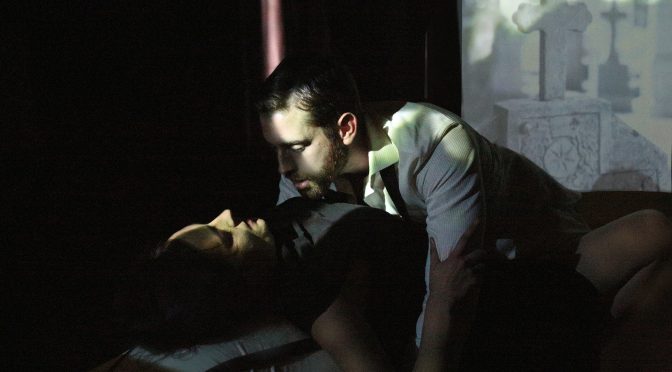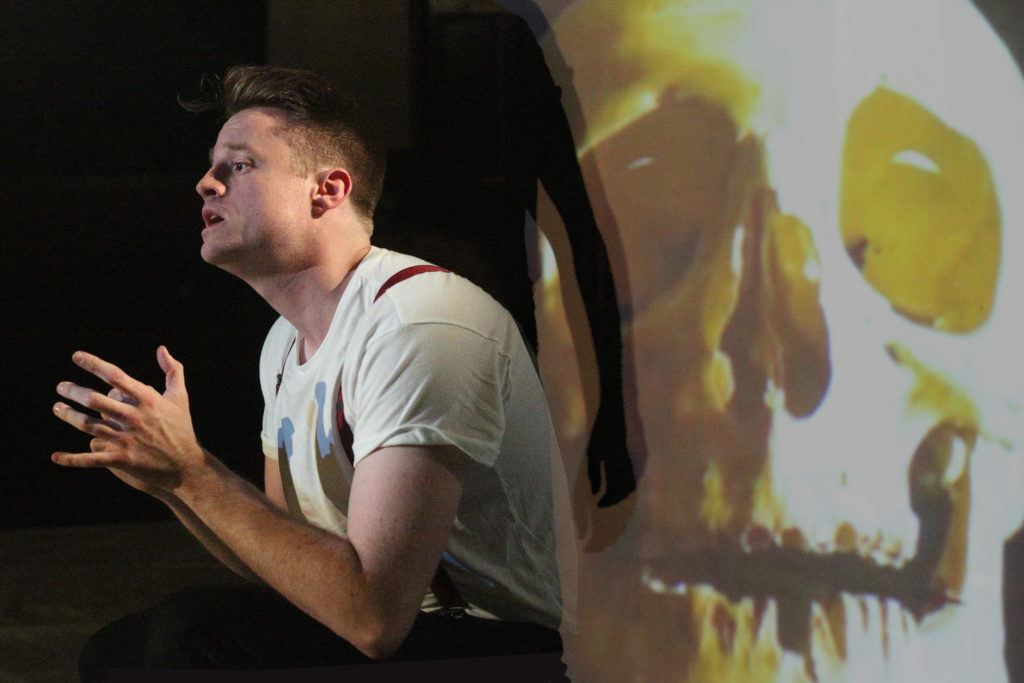Here’s a chance to see a great play by one of the finest writers around. Philip Ridley’s nightmarish nativity tale is an 80-minute monologue of consummate storytelling that’s not for the faint hearted. Second Sons Theatre Company’s production can be viewed as a summons to explore the darkest of subject matter – you have been warned.
As with another of Ridley’s short plays, Tonight With Donny Stixx, this is an intimate encounter with a disturbed, taboo-breaking youngster. As an examination into sexism, too, given Ridley’s ripe imagination, the result is one of toxic potency. It’s a huge role for Emily Thornton as Angela. A troubled childhood as “an invisible” abandoned by parents, a horrific, sexually abusive relationship, then a fantastical – and repulsive – breakdown and a crime are all mixed together. Thornton conveys her character’s unbalanced naivety well, her make-believing even better, and has a go with the themes of “camouflage” that excite Ridley. If there’s a shortcoming, some of the wicked humour is missed, but this is a performance to be proud of.
Samson Hawkins’ direction is unflinching, the staging bravely minimal. Andrea’s confused ideas about gender roles, including a flirtation with the language of fundamentalism, voice fears that many leave unspoken. It can’t be stressed enough that this is queasy stuff. But a play this audaciously florid, with a production that does it justice, is a challenge to an audience that should be accepted.
Until 31 March 2017
Photo copyright Second Sons



